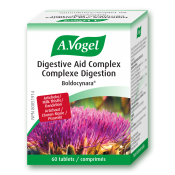The causes of gastric reflux
Gastric reflux is a normal phenomenon, but we call it GERD when it refers to a medical condition. This reflux is caused by a malfunctioning lower esophageal sphincter, a valve that normally keeps stomach acid from flowing back up into the esophagus. The failure of this anti-reflux mechanism can be caused by alcohol consumption, nicotine, caffeine and spicy foods. Obesity and overweight can also cause abdominal hyperpressure, which causes the lower esophageal sphincter to perform poorly.
The symptoms of gastric reflux
The two main symptoms of gastric reflux are heartburn and acid indigestion. These typically occur after meals, particularly when you are bending forward or lying down. ENT symptoms are also common: hoarseness in the morning, sore throat, chest pain… And the following symptoms are cause for concern: pain when swallowing, a feeling that food isn’t going down, or bleeding. These symptoms can point to complications.
Complications
The ineffectiveness of the anti-reflux mechanism can cause esophageal injuries, as acid reflux irritates the lining of the esophagus repeatedly over time. While these injuries are benign for the most part, they can lead to complications, such as inflammation of the esophagus, also known as esophagitis. If the lining of the esophagus is perforated, there’s a risk you’ll develop ulcers. In more severe cases, gastric juices can cause digestive tract bleeding, which in turn can lead to esophageal cancer.
Foods as a natural remedy against gastric reflux
Treatment with typical medications, which are potentially harmful and costly, is not the only way to cure the symptoms of gastric reflux. Certain natural remedies containing milk thistle, boldo and artichoke can relieve gastric reflux. Some foods can also reduce the symptoms of acid indigestion and heartburn. Here are a few things you can add to your diet:
- Raw almonds
- Carrot juice
- Bananas
- German chamomile tea can also help reduce the symptoms of acid reflux.





